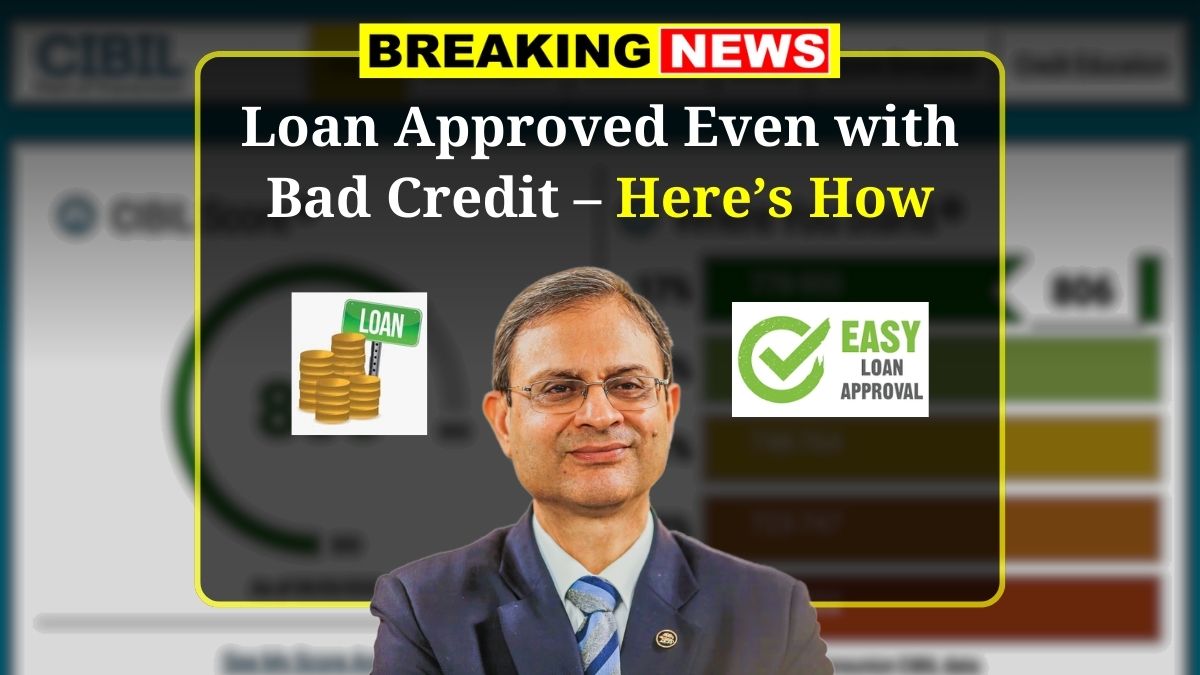CIBIL Score New Rules – We all know that having a good CIBIL score is a big help when you’re trying to get a loan. Banks and other lenders look at it to decide whether or not you’re reliable when it comes to repaying borrowed money. If your score is low, it can definitely make things harder. But that doesn’t mean you’re completely out of options. Even with a poor credit score, there are still ways you can arrange funds when you’re in a tight spot.
So if you’re stressed about getting a loan with a bad CIBIL score, don’t worry. There are a few smart workarounds you can try. Let’s talk about five practical options that might help you secure the money you need.
Try Applying Through NBFCs
If your bank has rejected your loan application due to your credit score, you can consider approaching an NBFC—that’s a Non-Banking Financial Company. These institutions are a little more flexible than traditional banks when it comes to lending money.
They often cater to people with low or average CIBIL scores, though the catch is that they usually charge higher interest rates. So, before you go ahead, make sure to check and compare the rates, repayment terms, and other fees. But if your need is urgent, NBFCs can be a pretty handy option.
Go for a Joint Loan with a Co-Applicant
Another option you can look into is applying for a joint loan. If your income is decent and the only thing holding you back is a low credit score, you can bring in a co-applicant with a better score. This increases your chances of getting the loan approved.
The lender sees it as a safer bet because the co-applicant can step in if you fail to repay. You can also consider bringing in a guarantor who has a good financial profile. Bonus tip: If your co-applicant is a woman, you might even get a slight reduction in the interest rate offered by some lenders.
Consider Taking a Gold Loan
If you have gold at home—maybe in the form of jewelry or coins—you can use it to get a loan. Gold loans are classified as secured loans, which means you’re giving something of value as collateral. The good part is that these loans are generally easier to get, and most lenders won’t even bother checking your CIBIL score.
You can usually borrow up to 75% of the current value of the gold you pledge. The process is also pretty quick and involves very little paperwork. Just keep in mind that your gold will remain with the lender until you repay the loan in full.
Use Your Savings to Your Advantage
If you’ve been putting money into fixed deposits (FDs), Public Provident Fund (PPF), or LIC policies, you might be able to get a loan against those savings. In this case, you’re basically borrowing your own money, so the risk to the lender is very low. That’s why they don’t focus much on your credit score.
The loan amount depends on how much you’ve saved, and there’s usually a clear repayment period set in advance. For instance, if your PPF account is at least one year old, you can apply for a loan against it. This can be a safer and more affordable option than borrowing from other sources.
Peer-to-Peer (P2P) Lending Might Work
Another option that’s become popular recently is peer-to-peer lending platforms. These are online platforms where individual investors lend money directly to borrowers. P2P lenders are generally more open to lending to people with low CIBIL scores, especially if you can show a stable income or offer other reassurances. Again, the interest rate might be higher, but these platforms can be a great way to access funds without going through traditional banks or financial institutions.
Having a low CIBIL score doesn’t mean you’re stuck without options. While it’s true that a good score makes things easier, there are still ways to manage when you’re in a financial crunch. Whether it’s taking a gold loan, going through NBFCs, using your own investments, or finding a co-applicant, there’s almost always a way to get the help you need. The key is to weigh all your options carefully and go with the one that works best for your situation.
Disclaimer
The information provided in this article is for general awareness purposes only. Loan eligibility, interest rates, and repayment terms may vary depending on the lender and individual financial situations. Always consult a certified financial advisor or loan expert before making any financial decisions.





